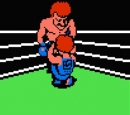Nintendo's gaming guru on the recession, innovation and the Wii
- Mar 24th 2010, 16:56 by TS | London
Shigeru Miyamoto, the creative force behind many of Nintendo’s biggest gaming franchises, including Mario and Zelda, was in London this month to receive an award from the British Academy of Film and Television Arts. He talked to Babbage about the state of the industry, where the next wave of innovation will come from, and the early days of the Wii, among other things. Perhaps most striking was his suggestion that the drop in sales of video games in 2009 compared with 2008 (down 6.3% worldwide, according to Screen Digest) might simply have been due to an inferior crop of games, rather than the recession. After all, 2008 was a particularly good year for the industry, and thus a hard act to follow. Mr Miyamoto also explained that he first realised the Wii would be a hit when Nintendo’s elderly board members, who were not gamers, took to the console when it was presented in a board meeting. The transcript is below. (Mr Miyamoto spoke via an interpreter.)
Q: How do you interpret the slowdown in sales in 2009? Wasn’t gaming meant to be recession-proof?
A: Well, I think any entertainment products are less susceptible to changes in the economy. The fact that in 2009 we were not able to sell more than we did in 2008 was simply that in comparison, we were not able to produce fun-enough products. There are always ups and downs in this business. As long as we create unique and unprecedented experiences with video games, there should be nothing to worry about.
Q: Do you worry that the market is becoming saturated?
A: Some may call 2008 the peak year for the current generation of video games. But there is always the opportunity to further expand video-game entertainment, and invite more people to enjoy playing. I think we needed to understand what any entertainment business is all about. There is no fixed demand for entertainment in general, and video games are not an exception. As long as we can create something new, which can offer some unprecedented experience, there is always demand we can create. So there is a lot of responsibility on the shoulders of game creators. We try to see that not as a limit, but as an enormous and unlimited opportunity in front of us. Looking back, video games used to be entertainment that was new and fresh to everyone, everyone was interested. But gradually there appeared a certain separation, and until quite recently video games became something for a particular audience; there was a separation between people who play video games and people who don’t. And looking at that kind of situation, I personally wanted to break down the wall between the two, and bring back gaming to anybody, the general public, just as it used to be many years ago.
Q: Where will the next wave of innovation come from?
A: Of course, even if I have something in mind, I am not in a position to say anything about that! But one thing I can say is that I am realising the increasing potential for video games. Not long ago, the hardware manufacturers were simply competing in terms of which company could come up with the most sophisticated computer graphics, rendering technologies and so forth. But today we are seeing the competition from a different perspective. People are asking what kind of gameplay experience particular hardware can generate. At Nintendo we are trying to see video-game technology from the perspective of how we can integrate some of these technologies into daily life, like the Wii Fit.
Q: What about online gaming?
A: It is often said that Nintendo was rather late in advancing into the network world. Actually we simply wanted to take sufficient time to make it a proper business, and make it as comfortable an environment as possible for consumers. Starting from the launch of the Wii, we became more proactive. I think it is obvious that when everyone is connected online, there will be enormous opportunity for me to create something really unique. But my job is to try to entertain as many people as possible, and I see all Wii owners as the audience. Of course, we have Mario Kart, which can be played online by multiple people. So we are gradually expanding the experiences using the internet, but my own personal focus is to try to entertain people, even if they are not connected to the internet. That is my first priority.
Q: When did you first realise that the Wii would be a success?
A: When I was given the opportunity to play Wii Sports, especially Wii Tennis, for the first time. I have been involved in the interface design of Nintendo hardware for many years, and I realised this was very unusual and could become a breakthrough that might attract more people than before. Even at Nintendo, some of the board of directors do not play video games, we have to admit, and when we had a board meeting, I invited some of the Wii developers. We had the big TV monitor hooked up with the Wii console, and we encouraged some of the non-playing board members to play with that. When I saw them playing and enjoying it, it gave me a hint that this would be something really big.
Q: What do you say to people who say video games are too violent?
A: I say all media have good aspects and bad aspects. The fact is that cartoons, manga, were regarded as something really bad for the young people in Japan. But I was raised by reading a lot of manga, and thanks to that kind of experience, I have my job, I have my career.
http://www.economist.com/blogs/babbage/2010/03/wisdom_miyamoto




















